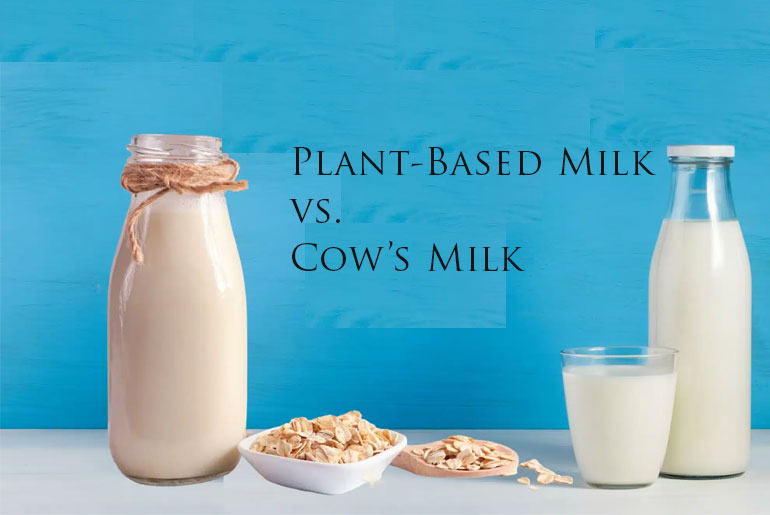Plant-based milk and cow’s milk differ significantly in their nutritional content, environmental impact, and suitability for dietary preferences. Cow’s milk is a natural source of protein, calcium, and vitamins like B12 and D, but it may not suit those who are lactose intolerant or allergic to dairy. Plant-based milks, such as almond, soy, oat, and coconut, are often fortified with nutrients to match cow’s milk and are ideal for vegan or lactose-free diets. They vary in taste, texture, and nutritional profiles, with some, like soy milk, offering comparable protein levels. Additionally, plant-based options generally have a lower environmental footprint, making them a popular choice for eco-conscious consumers.
Plant-based milk is widely regarded as a healthy alternative to dairy, especially for individuals with lactose intolerance or allergies. The nutritional value of plant-based milk may not match that of cow’s milk, primarily due to the extensive processing it undergoes.
Key Findings of the Study:
The researchers analyzed 10 types of plant-based milk and compared them to cow’s milk, concluding that plant-based options generally fall short nutritionally. While consuming more plant-based foods is beneficial for overall health, relying solely on plant-based milk as a nutritional equivalent to cow’s milk is a mistake.
Impact of Processing on Plant-Based Milk:
Unlike cow’s milk, which is minimally processed, plant-based milk undergoes Ultra High Temperature (UHT) treatment. This process involves heating the milk to very high temperatures to extend shelf life but triggers the Maillard reaction, a chemical reaction that significantly diminishes the nutritional value of the milk. Specifically, UHT treatment reduces the protein and amino acid content in plant-based milk.
Cow’s Milk vs. Plant-Based Milk:
- Protein Content: Cow’s milk contains approximately 3.4 grams of protein per liter, while most plant-based milk options contain only 0.4 to 1.1 grams of protein.
- Sugar and Acrylamide: Plant-based milk often has higher sugar content compared to cow’s milk. Additionally, traces of acrylamide—a compound linked to potential health risks and typically found in fried foods—were detected in plant-based beverages.
Dietary Recommendations:
Plant-based milk can still be part of a healthy diet, but consumers should be aware of its nutritional limitations. It is important to supplement the diet with other nutrient-rich foods to meet protein, amino acid, and other nutritional needs. For individuals seeking a dairy alternative, choosing fortified plant-based milk or balancing it with whole foods is advisable.
Disclaimer:
The information contained in this article is for educational and informational purposes only and is not intended as a health advice. We would ask you to consult a qualified professional or medical expert to gain additional knowledge before you choose to consume any product or perform any exercise.






